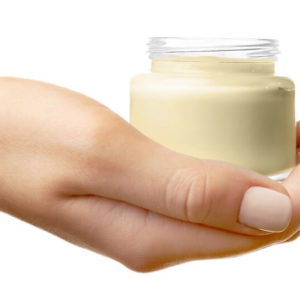To some people, the idea of self-care is foreign. We are so busy dealing with the daily pressures of life, family, career, and other obligations, that the very thought of setting aside deliberate time for ourselves gets pushed aside and may even cause feelings of guilt. Well friends, I’m here to tell you that taking care of yourself is not just a luxury; it’s a necessity. Let’s talk about the importance of taking time for yourself and how it can actually improve your relationships and productivity.
Solitude is Not Loneliness
Solitude. It’s something most of us don’t prioritize or even value. With the demands of family and work life, many people are hard-pressed to squeeze in a few minutes for themselves on a regular basis.
It’s important to understand that solitude is not synonymous with loneliness. Solitude is the state of being alone without communicating with others. In contrast, loneliness is the perceived discrepancy between actual and desired levels of social connection. In short, solitude is a choice to be alone; while loneliness is an undesired lack of companionship. Individuals can feel lonely in the presence of others as well as content during periods of solitude.
Health Benefits of Solitude

Decreased Stimulation and Emotional Arousal
Because we are energetic beings, we tend to draw energy from others. The more we are surrounded by other people, the more we become influenced by their energy. This is why being around someone who is particularly negative can bring you down, while being around people who are upbeat and positive is contagious as well. Since we draw energy from one another, it is important to take time away from others. This helps us to wind down and get a grip on all that erratic energy, whether it is positive or negative.
Decreased Anger and Anxiety
In one study, subjects became less angry and anxious when they allowed themselves some alone time. The researchers suggest that people can use solitude to regulate their affective states, becoming quiet after excitement, calm after an angry episode, or centered and peaceful when desired. This indicates that solitude brings a better sense of self-awareness and self-regulation. Taking a moment to take stock of your emotions and get a grip on them can decrease stress, anxiety, and depression and help you become more relaxed and calm.
Taking Time for Yourself
So if solitude helps regulate our mood and decreases stress and anxiety, everyone we interact with can benefit. When we are less prone to anger, stress, and sadness and less likely to react in negative ways to our circumstances, we are better able to handle whatever life throws at us. But this does not just mean sitting all alone in silence. Here are some common ways to seek out solitude and time just for you.
Meditation

Spending time meditating is an excellent way to recharge. It trains you to quiet the voices in your head and helps you to connect with the spiritual part of yourself. As you become more insightful and reflective through meditation, your awareness of unwholesome self-judgments will increase so that you can take steps to consciously make changes. Meditation is also a means of connecting to God. Praying can uplift our spirit and bring a sense of inner peace.
Take Time to Reflect
This goes along with meditation somewhat. Journaling is a great way to release tension and negativity and to take inventory of the good things in your life. You may even consider creating a sanctuary for yourself. If you don’t have an entire room, you can create a special place with just a comfy couch or even a pile of pillows. The idea is to make a place where your brain is conditioned to wind down and relax. You don’t need hours each day either; you’ll be amazed at how spending just 15 minutes of meditation and journaling time will improve your day and your mood.
Exercise

Regular exercise is not just beneficial for your physical health. It also benefits your emotional and mental well-being. Exercise improves mental health by reducing anxiety, depression, and negative mood and by improving self-esteem and cognitive function.
Yoga practices may be of particular efficacy for specific disorders, such as the improvement in negative rumination in anxiety and depressive disorders.
Whether you choose to do yoga, take up an aerobics class, hit the pavement running, or another form of exercise, taking this time for yourself is key to physical and emotional well being.
Prioritize Sleep
Sleep has a huge impact on how you feel physically and emotionally. When we don’t get enough sleep, we are more prone to stress, and it affects more than just our physical health. Being overtired also decreases brain function and causes mood disturbances. The sleepy toddler throwing a tantrum is not the only one who suffers the effects of sleep deprivation. We women need our rest in order to handle the pressures of our everyday lives.
Take Time to Feed Yourself Well
Eating right takes time. When we are so busy that we resort to grabbing-and-going, we tend to reach for less than desirable foods, nutritionally speaking. Prioritizing meal planning, prepping, and shopping is an absolute must when it comes to self care. The better you eat, the better you look and feel on the inside as well as the outside.

Drinking plenty of water is another way to care for your body. In fact, this study reveals a correlation between drinking water and mental state. Believe it or not, drinking more water can actually decrease your feelings of depression and anxiety. So, drink up!
Indulge
Sometimes we become drained and parched from giving and pouring ourselves out to others. These times, a bit of indulgence can go a long way to replenishing our well being. Spend a day doing something you love: Take a walk in a favorite park, go window shopping, time at the spa, stay in your pajamas and read a book or binge-watch your favorite TV show. The point is, it doesn’t matter what you do, just take time to relax and enjoy yourself.
You may even decide to go on a weekend retreat or another type of vacation. Getting away from your daily responsibilities will make you better able to handle them when you come back to reality.
Schedule “Me Time”
Now that you have a few ideas of ways to prioritize your self-care time, it’s time to make a plan. If you don’t get intentional and deliberate, you won’t actually follow through. Schedule time for yourself on a daily, weekly, and monthly basis. That may mean committing 15 minutes a day to mediation, 3-5 hours a week for exercise, and maybe a few hours for meal planning. Why not look ahead and plan that weekend retreat or getaway to recharge?

The message here is, whatever you decide to do, schedule it ahead of time. And then guard that self-care appointment as though it were the most important thing on your calendar. Because, you know, in some ways, it really is just that.
How taking time for yourself with a relaxing bath? Try this recipe for my Calming Waters Bath Salts.












